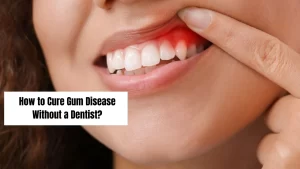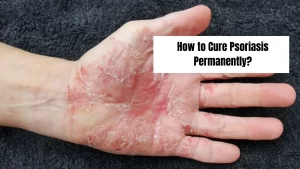
Want to know how to cure psoriasis permanently? Well, you have landed on the right article.
Psoriasis, a chronic autoimmune disorder, manifests as red, scaly patches on the skin. Despite lacking a known permanent cure, various treatments exist to manage symptoms. This article explores the multidimensional approach of combining medical interventions with lifestyle modifications to effectively manage psoriasis and enhance quality of life.
What Is Psoriasis?
Psoriasis is characterized by the inflammation of the skin due to an autoimmune condition. It presents symptoms such as the formation of thick, scaly plaques on the skin. Being a chronic skin condition, psoriasis can flare up unexpectedly and unfortunately, there is currently no cure available for it.
Types of psoriasis
Psoriasis manifests in several different types, including:
Plaque psoriasis: This is the most common form, accounting for 80% to 90% of psoriasis cases. It is characterised by thick plaques on the skin covered in scales.
Inverse psoriasis: This type occurs in skin folds, leading to thin plaques without scales.
Guttate psoriasis: Typically following a streptococcal infection, guttate psoriasis appears as small, red, drop-shaped scaly spots. It often affects children and young adults.
Pustular psoriasis: Pustular psoriasis presents with small bumps filled with pus on top of plaques.
Erythrodermic psoriasis: This severe type affects more than 90% of the skin, causing widespread discoloration and flaking.
Sebopsoriasis: Primarily found on the face and scalp, sebopsoriasis displays as greasy, yellow-scaly bumps and plaques. Sebopsoriasis is characterized by a blend of symptoms from both psoriasis and seborrheic dermatitis.
Nail psoriasis: Nail psoriasis results in nail discoloration, pitting, and changes in the appearance of fingernails and toenails.
How to cure psoriasis permanently
Achieving permanent relief from psoriasis involves a comprehensive approach. Incorporate a balanced diet, hydrate well, and manage stress. Topical treatments, phototherapy, and medications prescribed by a dermatologist can provide effective results. Consistency in your regimen and lifestyle adjustments are key to managing psoriasis and enjoying long-lasting improvements in skin health.
What are 3 symptoms of psoriasis?
The symptoms of psoriasis can differ among individuals, but there are some common manifestations, including:
- Thick, red patches of skin covered with silvery-white scales that may itch or cause a burning sensation. These patches often appear on the elbows, knees, scalp, trunk, palms, and soles of the feet.
- Dry and cracked skin that may itch and sometimes bleed.
- Nails that are thickened, ridged, or pitted in appearance.
What is the major cause of psoriasis?
The exact cause of psoriasis remains not fully comprehended. However, it is believed to stem from an immune system malfunction wherein infection-fighting cells mistakenly attack healthy skin cells. The development of psoriasis is believed to result from a combination of genetic factors and environmental influences playing a role in its onset and progression. It is crucial to note that psoriasis is not contagious, meaning it cannot be transmitted from person to person.
What is the main Treatment for psoriasis?
Corticosteroids are commonly prescribed medications for the treatment of mild to moderate psoriasis. They come in various forms such as oils, ointments, creams, lotions, gels, foams, sprays, and shampoos. These medications are frequently utilized to alleviate the symptoms associated with psoriasis.
When to see a doctor?
If you suspect you may be experiencing symptoms of psoriasis, it is important to consult a healthcare professional. Additionally, it is advisable to seek medical attention if your condition:
- Becomes severe or spreads extensively.
- Causes discomfort and pain.
- Raises concerns about the appearance of your skin.
- Does not show improvement despite treatment.
Conclusion
In conclusion,how to cure psoriasis permanently attai必利勁
ning a lasting solution for psoriasis requires a multi-faceted strategy. By adopting a holistic approach that encompasses proper skincare, healthy habits, medical treatments, and professional guidance, individuals can strive for long-term relief from psoriasis. While complete eradication may not always be possible, consistent efforts and a proactive mindset can lead to significant improvements in managing the condition and enhancing overall quality of life. Remember, personalised care and persistence are the keys to unlocking the path towards a more comfortable and confident life with psoriasis.
FAQ
Q1: Can psoriasis be cured?
Ans: Currently, there is no known cure for psoriasis.
Q2: What triggers psoriasis flare-ups?
Ans: Psoriasis flare-ups can be triggered by various factors such as stress, infections, certain medications, and weather changes.
Q3: Can diet affect psoriasis?
Ans: While diet alone cannot cure psoriasis, certain dietary modifications may help manage symptoms for some individuals.
Q4: Are there any natural remedies for psoriasis?
Ans: Natural remedies like moisturizers, oatmeal baths, and certain plant extracts may provide temporary relief, but consult a healthcare professional for appropriate treatment.





